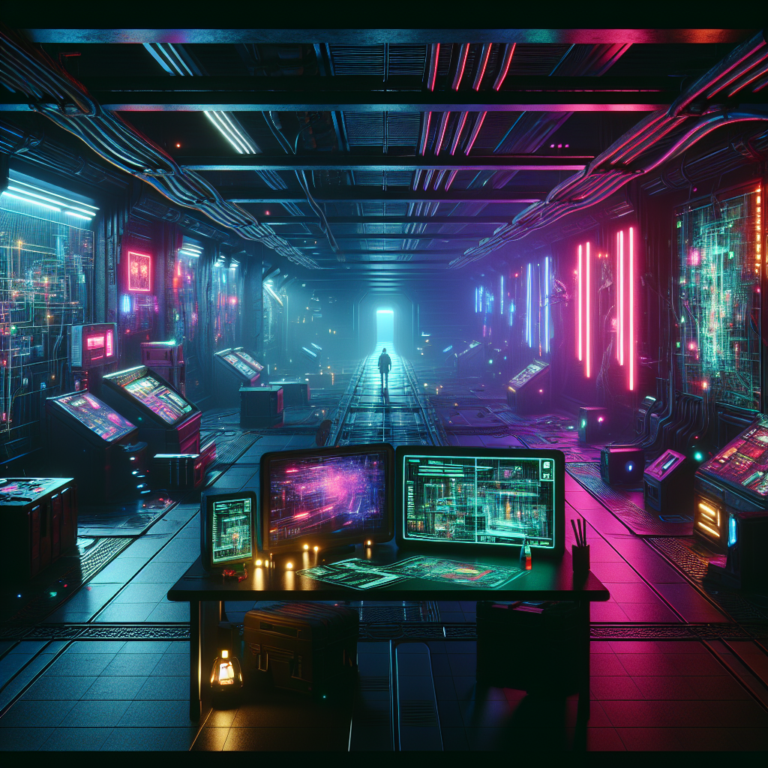Meta’s Strategic Shift: The Cancellation of VR Projects Including System Shock 2
Meta has recently made headlines by deciding to discontinue the VR adaptation of System Shock 2, a beloved cult classic originally launched in 1999. This choice is part of a broader cancellation of several other projects, signifying a notable transformation in Meta’s strategic focus concerning VR endeavors. The company’s reallocation of resources suggests a shift towards initiatives that promise greater potential or alignment with its strategic goals. As Meta navigates this evolving landscape of Virtual Reality (VR) investments, both fans and developers are left pondering the ramifications of this strategic shift.
Understanding the System Shock 2 Remaster
- System Shock 2 is a pioneering sci-fi horror action role-playing game initially crafted by Looking Glass Studios. The title has retained its status as a cherished classic within the gaming community since its initial release.
- A 25th Anniversary Remaster is expected to debut in June across various platforms, including Steam, PlayStation, Xbox, and Nintendo Switch. Nevertheless, the cancellation of its VR iteration signifies that fans will forgo an immersive experience capable of fully utilizing VR’s potential.
Meta’s Decision to Cancel System Shock 2 VR
The announcement regarding the cancellation of the VR iteration of System Shock 2 was made by Stephen Kick, the leader of Nightdive Studios. Kick pointed out that the cancellation involved not just the VR port of System Shock 2 but also numerous other projects, highlighting a more profound strategic reassessment of resource allocation within VR initiatives. This decision indicates that Meta is revising its priorities in virtual reality, placing emphasis on projects that present enhanced potential or greater strategic relevance.
Potential for Restarting Development
While immediate attention is directed towards the remastered version, there are hints that VR development may resume in the future. Such a restart could manifest as a patch or a standalone release, depending on the reception of the 25th Anniversary Remaster. The immersive horror aspects of the game would have been especially fitting for VR, providing a distinctive experience compared to the non-VR editions.
Meta’s Commitment to VR
Despite receiving criticism for discontinuing projects, Meta remains actively engaged in the VR sphere. The organization has launched significant titles and supported numerous smaller developers, demonstrating its dedication to VR content creation. Among these efforts are games such as Medal of Honor: Above and Beyond and Resident Evil 4 VR, reflecting Meta’s continuous investment in the VR ecosystem.
Comparison with Other Platforms
In comparison with Valve, which has faced scrutiny for its lack of commitment to VR despite notable titles like Half-Life: Alyx, Meta continues to release new VR content. However, the cancellation of System Shock 2 VR suggests a more cautious approach to selecting and investing in projects. This strategic adjustment emphasizes Meta’s intent to strike a balance between innovation and effective resource management, ensuring that only the most promising projects receive backing.
Fan Reaction and Future Possibilities
The announcement of the cancellation has resulted in disappointment among fans eager to experience System Shock 2 in a VR setting. The game’s horror elements were poised to create a unique experience, particularly within environments like the Von Braun. Should the remastered version garner favorable reviews, it may open doors for potential future VR implementations.
Impact on Developer Confidence and Player Engagement
Discontinuing such a renowned project could impact developers’ faith in investing time and resources into VR titles. Disheartened fans might seek immersive gaming experiences elsewhere, which may influence participant engagement in the VR community. This situation also heightens competition among various platforms like Meta, Valve, and others as they strive for leadership in the VR space by supporting innovative and captivating content.
Key Takeaways from Meta’s Decision
Here are some significant insights to consider following Meta’s choice:
- Project Prioritization: Meta is reexamining its VR priorities, concentrating on projects that promise higher potential and strategic alignment.
- Future Developments: The potential to restart the System Shock 2 VR development hinges on the success of the 25th Anniversary Remaster.
- Market Dynamics: The cancellation reflects wider market changes, with companies evaluating their investment strategies for VR projects.
As the VR landscape continues to transform, Meta’s choice underscores the challenges faced by developers and platform holders in managing a balance between innovation and resource distribution. The success of the upcoming remaster will likely shape future VR developments within the System Shock franchise. The ongoing progression of VR gaming highlights the necessity of thoughtfully selecting and developing projects that exploit VR’s unique attributes, ensuring a more immersive and engaging experience for players globally.
Additional Resources:
Meta to Shut Down AR Studio in Early 2025 – Virtual Reality Times
Meta Platforms on Wikipedia
Virtual Reality in Marketing – Semrush
Apple Vision Pro Review – CNET




0 Comments